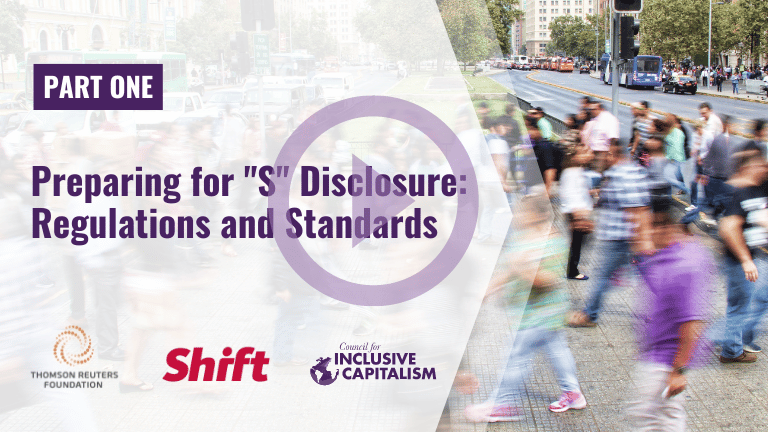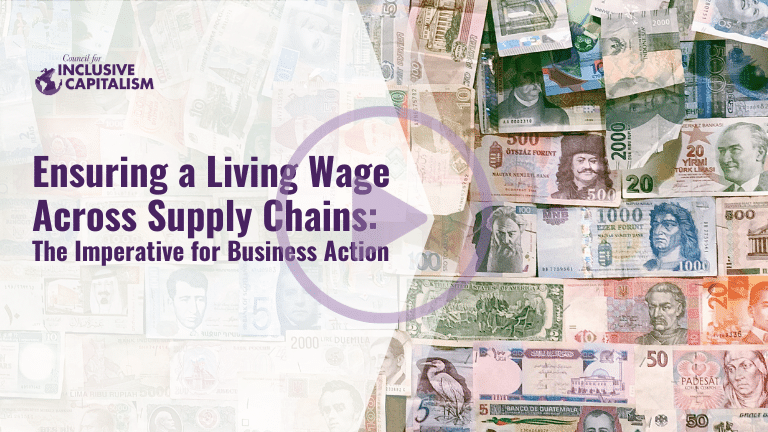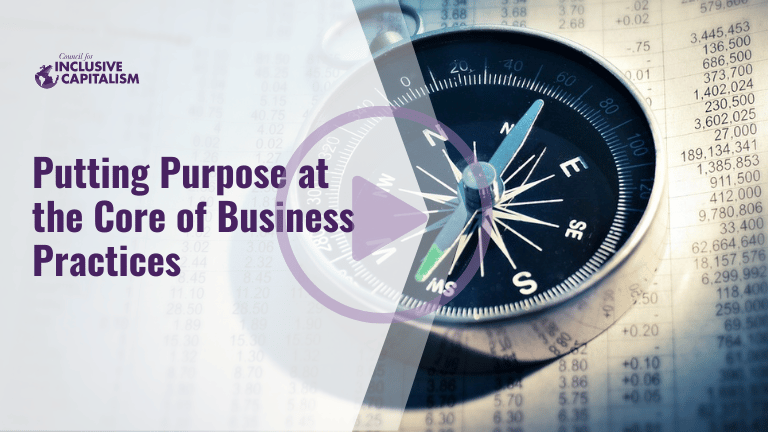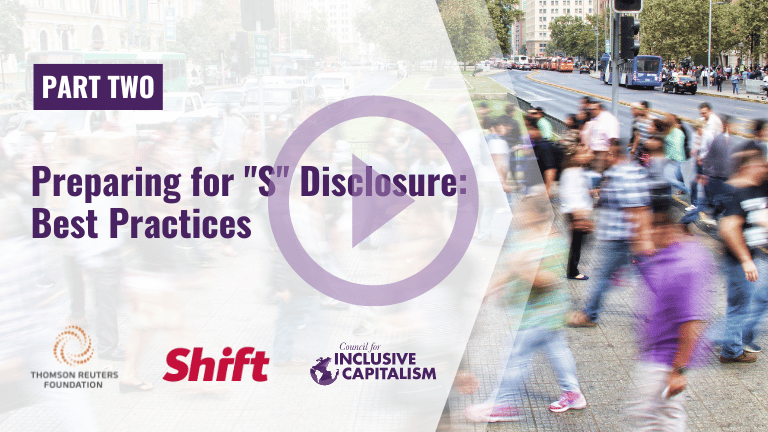Preparing for ‘S’ Disclosure: Standards and Regulations

On September 13, the Council for Inclusive Capitalism partnered with Thomson Reuters Foundation and Shift for the first part of the “Preparing for ‘S’ Disclosure” series. This webinar focused on exploring the evolving regulations and standards and provided clarity on the scope of social disclosures and characteristics of good “S” metrics.
Key Takeaways:
- The ‘S’ is about impacts on people, specifically: 1) a company’s own workforce; 2) workers in the value chain; 3) affected communities; and 4) people impacted by a company’s products and services.
- With social disclosure, we are looking to understand, measure and value the outcomes of business actions.
- Regulatory, reporting, and industry initiatives in a range of countries and regions have the common thread of reinforcing that companies should act with due diligence to anticipate and address social risks and opportunities.
- Unlike in the ‘E’ space, in the ‘S’ space, there is a weak link between company actions and outcomes. Companies, therefore, have an important role in sharing out actions and outcomes to help governments, investors, peer companies, and other stakeholders determine what works.
- There is more commonality and complementarity in the different ‘S’ measurement frameworks and methods than most realize. The wellbeing, human rights, and human and social capital approaches all embrace the issue of growing inequality, and the system-level risk this now represents for societies and businesses alike.
- There is complementarity of different measurement methods even as the three frameworks offer distinct insight and value to business leaders, investors, regulators and civil society. For example, a “wellbeing” lens looks to describe the full range of positive and negative outcomes resulting from business practice, while business and human rights, as a normative framework focuses on whether outcomes fall above or below the threshold needed for people to have a life of basic dignity and equality; and human and social capital look to value the consequences of those outcomes in ways that can support effective decision-making within business.
- There is a real, and underappreciated, competitive advantage to be realized for companies that pursue profit in ways that also result in positive outcomes for people and for the communities in which they operate. This is the value creation beyond profit that mitigates systemic risk by contributing to healthy economies and societies that we need as businesses to be successful.



